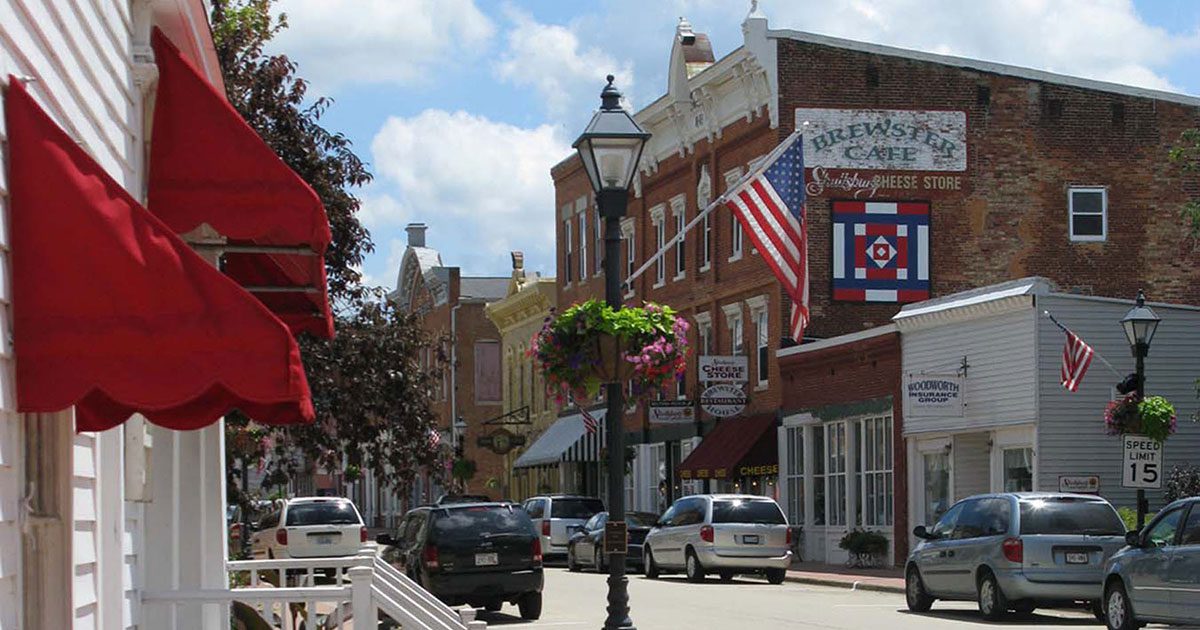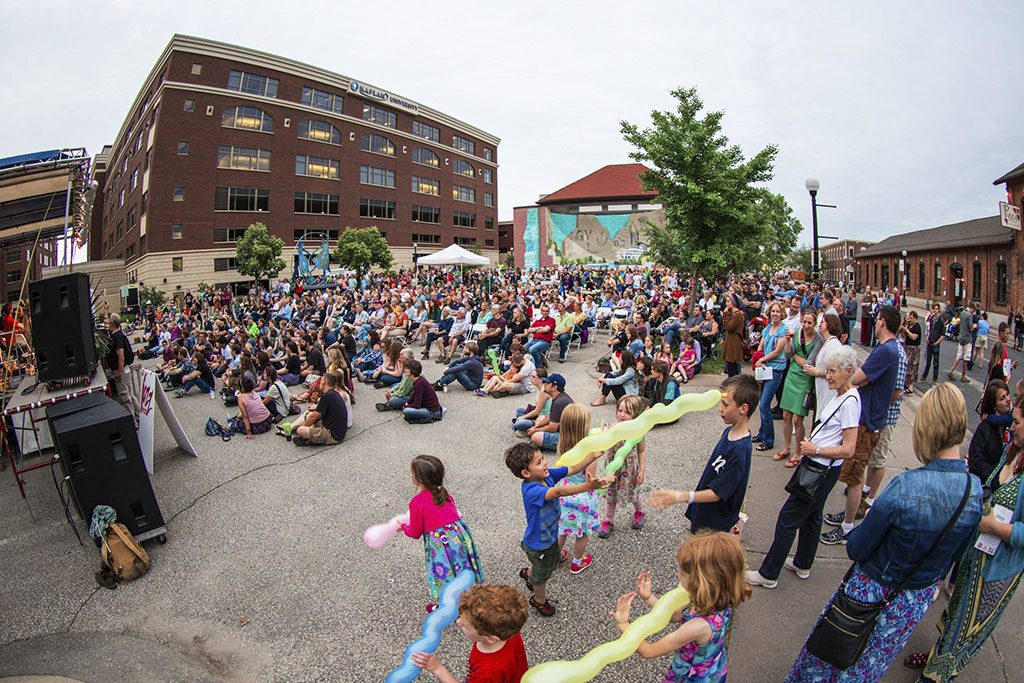Darrin Wasniewski, Wisconsin Main Street Organization and Promotion Specialist
I am often asked by boards looking to hire their next director about what they should look for in a candidate. My response is always the same: hire for personality and we will train for skill. A Main Street America™ program director’s most important skill is the ability to diplomatically handle a variety of people, and this is not easily taught. Fortunately, though, the movement offers plenty of continuing education opportunities to hone one’s expertise in the Four Points™- Design, Economic Vitality, Promotion and Organization. In her January 10, 2017 article for Harvard Business Review, “How to Decide Which Conferences Are Worth Your Time,” author Dorie Clark shares: “In a world where we’re bombarded with email, it’s disproportionately effective to connect with people face to face. Conferences, if you choose them wisely, can be one of the best ways to accelerate this process, since you can meet large numbers of people in just a few days.”
Opportunities close at hand
The annual contract with Wisconsin Main Street programs stipulates that designated programs need to attend at least three of five annual training opportunities:
- Wisconsin Main Street Workshops held in March, June and September each year;
- Wisconsin Downtown Action Council’s Downtown Summit/Upper Mississippi Main Street Conference held in October in opposite years; and
- Main Street Now, the annual conference of Main Street America.

Leanne Tingay of Orton Family Foundation’s Community Heart & Soul presents to Wisconsin Main Street and Connect Communities programs in Whitewater, Wis.
Each Wisconsin Main Street workshop focuses on one of the Four Points™, and is facilitated by a regional or national subject matter expert. Some recent topics included board development (March 2017), tourism promotion (June 2017), real estate development (September 2017), community engagement the Heart and Soul Way (March 2018), and our upcoming event impact workshop in Two Rivers scheduled for June 14. In addition, based on feedback from programs that listed fundraising as one of their top challenges, we contracted with Marc Smiley of Solid Ground Consulting for a two-part workshop on creating a culture of philanthropy. The first installment was held in December 2017, and we will meet next on May 16 in Eau Claire and May 18 in Watertown. At each of these sessions, Marc will cover donor cultivation plans, board member action plans and crafting personal stories.
This year has also brought some further opportunities, as Wisconsin Main Street secured additional funding through the U.S. Department of Agriculture to deliver training to our rural communities on retail merchandising, developing a pop-up shop program, mobile phone photography, business succession planning, restaurant and hospitality best practices, and keys to business success. These training sessions are held throughout the state, with complete listings available on the Wisconsin Main Street Facebook page.
On a grand scale

Wisconsin Main Street directors and state staff debrief after a full day at Main Street Now, the annual conference of Main Street America, in Kansas City, Mo.
Main Street Now, the annual conference of Main Street America, presents a premier opportunity to expand one’s knowledge of historic commercial district development. Most recently held in Kansas City, Missouri, the event welcomed over 1,600 practitioners from around the U.S. and Canada who immersed themselves in over 80 educational sessions and a few dozen mobile tours where they could witness firsthand the practical application of our work in districts of all sizes. Value is gained not just through attending the national conference, but also in sharing your knowledge by either participating on a panel or facilitating a session. This year, Deshea Agee of Historic King Drive BID No. 8 was a panelist for a session on Business Improvement Districts and UrbanMain. Allyson Watson, the former director of Definitely De Pere and current UW-Extension educator in Outagamie County, shared her findings as a part of the research team behind Gaining and Maintaining Young People in Wisconsin Communities, and I presented a session titled “Community Engagement through Agile Strategy” where I outlined applying the principles of agile strategy to community engagement through the Strategic Doing™ approach.
“I find a lot of value in the National Main Street conference. The majority of my sessions were mobile workshops,” says Mary McPhetridge, executive director of Ashland Area Chamber of Commerce. “I find such meaningful items from these because they are typically smaller areas that are more in line with our size. This year my favorite trips were visiting Liberty and Excelsior Springs. I love to network with the other downtown organization managers. I brought back some ideas for my downtown in terms of events and programs.”
Diversify your knowledge/networking base
Clark’s article also includes the following advice:
[S]uccessful professionals must cultivate a mix of what sociologists call “bonding capital” (connections with people like yourself) and “bridging capital” (connections with people who are different). Think about your 50 closest professional relationships. If almost all of them are at your company or in your industry, you may want to explore conferences that bring together diverse groups… Conversely, if your ties inside your industry are weak, consider attending events sponsored by your regional or national professional association.
With this in mind, Wisconsin Main Street has agreed to waive attendance at one of the required opportunities in order to support attendance at an event outside of the downtown development niche, such as tourism, economic development or historic preservation. This waiver would need to be approved in advance, and the attendee is expected to submit a summary of his or her takeaways for the benefit of others.
Fresh ideas to spark community excitement
Ashland’s Mary McPhetridge so aptly summed the value in continuing education. Connecting with peers and fresh ideas brings a renewed sense of excitement to the Wisconsin Main Street and Connect Communities programs. When I was a local director in Ohio, some of the best “forward thinking” time happened when board members and I returned from a conference or workshop. Early on, my program saw such value in this that our yearly budget included travel for not only me as a staff person, but also for board members. Connections from the trainings could be called upon at a later date to ask follow-up questions or assist with thinking through an idea. The power of the network is immeasurable for the success of downtowns and historic commercial districts.






